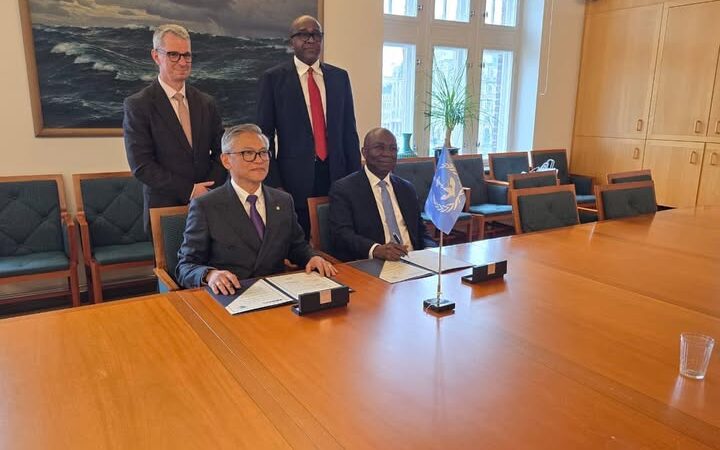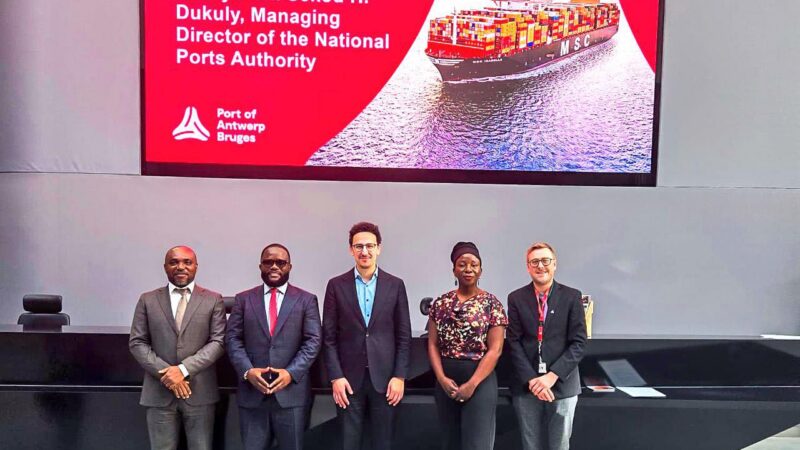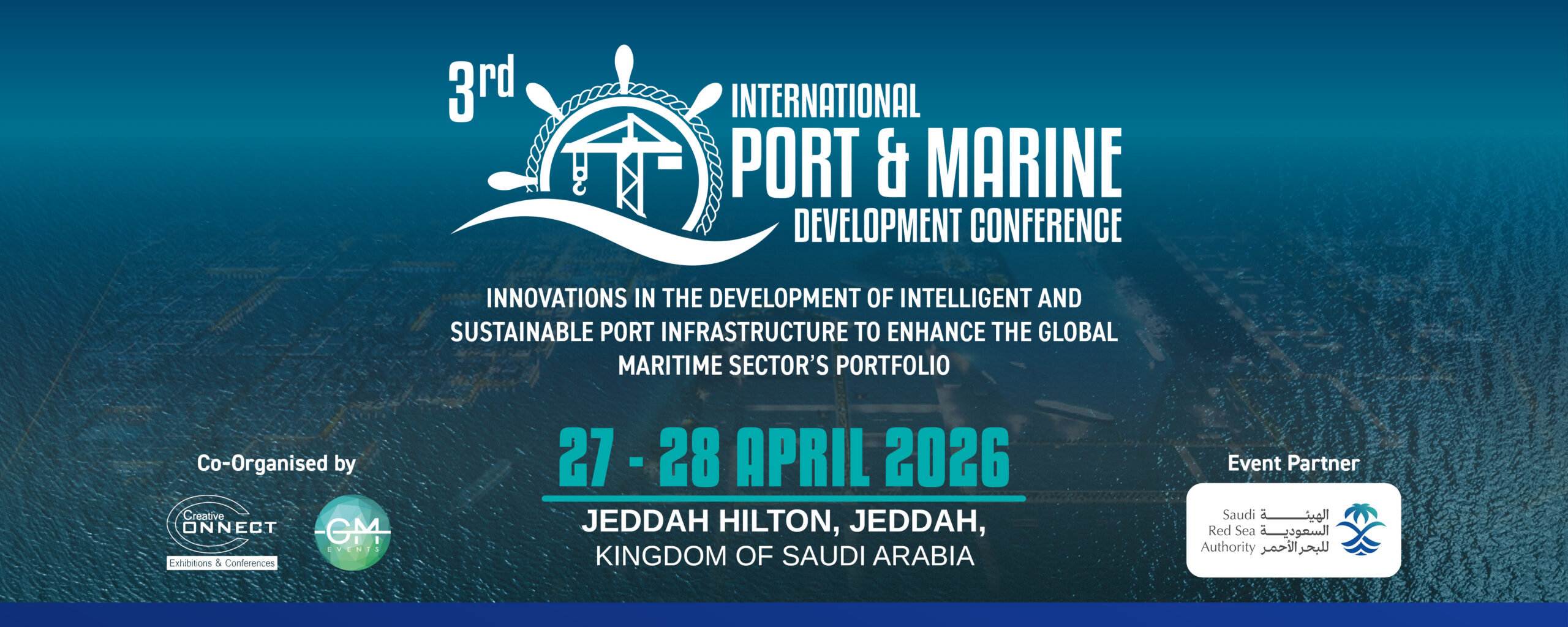Policy paper – Group of Friends of the Gulf of Guinea (G7 ++ FoGG): 2nd Ministerial Session 2021, final report
The 2nd ministerial session of the G7++ Friends of the Gulf of Guinea (G7++ FoGG) co-chaired by the UK and Senegal took place between the 24 – 26 November 2021 in Dakar.
The official opening ceremony, which took place on 25 November 2021, was co-chaired by their Excellences Madame Aïssata TALL SALL and Madame Victoria GRACE FORD, respectively Minister of Foreign Affairs and Senegalese Abroad and Minister for Africa.
Around 150 participants, made up of Ministers, senior officials, representatives of international organizations, civil society and the private sector, from the Gulf of Guinea countries, the G7 and other partner countries, took part in the Conference. In line with the roadmap of the co-chairs, the day of November 24 was exclusively devoted to question of creating a sustainable architecture and the re-activating of the G7++ FoGG’s finance working group.
The other 2 days focused on the activities of the other five (05) Working Groups.
I. Workshop on the remobilisation of the financial question
This day focused exclusively on centring the sustainable financing back at the heart of the implementation of the Yaoundé Architecture. Working Group 2 is the only mechanism of the FoGG that is not currently active. However, during this plenary Gulf countries and partners undertook significant efforts to consider how to take forward this area of work. At the end of the workshop, the following recommendations were noted:
- the empowerment of the Maritime Coordination Centers (CMC), through a strengthening of annual operating budget by the regional States
- strengthening the human and material resources of national navies
- consideration of an additional contribution of insurers to the financing of the Yaoundé Architecture, including through the community levy
- finalisation of the Code of Conduct to make it binding and establish a framework for public-private partnership
- the establishment of a mechanism allowing coastal states to reserve part of the taxes levied on the maritime industry for maritime security operations
- inclusion of discussion of funding at the proposed Heads of State Summit in 2023
- a pragmatic and targeted approach to funding and the involvement of international partners, including: ensuring offers of support match the needs identified by the Gulf of Guinea states; strengthened communication and coordination to avoid overlaps; and consideration of the sustainability of initiatives
- rationalization of interventions by both regional and non-regional states and organisations, by applying the principles of complementarity and subsidiarity with the aim of saving financial resources
In conclusion, it was decided to work in favour of the revitalization of Working Group 2 on finances, the coordination of which has been entrusted to Cameroon and Senegal. Other FoGG partners have been invited to contribute to these efforts.
In addition, the Senegalese-British co-presidency proposed to set up a light coordination mechanism, to ensure the continuity of the action of the Working Groups and a better transition between the co-presidencies. Whilst further work is needed to ensure any such mechanism meets the unique needs of the FoGG, inspiration may be drawn from the website created by the International Maritime Organisation, to coordinate efforts by regional and non-regional partners in the Gulf of Aden, and from the work of the ICC.
II. The summary of the conclusions of the Working Groups
-
-
Working Group 1 on Legal Aspects
-
The plenary celebrated the progress made on legal aspects this year, resulting in the first two cases of prosecutions for piracy: the Hailufeng-11 (Nigeria) and Dona-1 (Togo).
Six (06) countries now have a legal framework on piracy: Liberia, Togo, Nigeria, Gabon, Cabo Verde and Senegal.
The ECOWAS “Supplementary Act” will provide a framework for the transfer of suspected pirates, including key meetings of independent and government expert groups.
The progress made this year has resulted in a mature text that is due to be submitted to ECOWAS for adoption within the next year.
In 2022, objectives of this Working Group will be to work on the following points:
- support the development of ECOWAS and third countries in the development of legal texts relating to acts of banditry that are rampant in the Gulf of Guinea, or the transfer of pirates
- support the development of bilateral agreements between partners
- analyse the situation of private maritime security in the Gulf of Guinea to revise the laws in order to give better visibility to the institutions and
- appropriation of the architecture of Yaoundé to the signatory states, which must appropriate it
Thus, the following recommendations were formulated:
- broaden the definition of acts of piracy
- define a transfer agreement which concerns above all the countries which receive the transferred criminals and which must convict them and
- promote integration through the Yaoundé Architecture
-
-
Working Group 3 on Maritime Domain Awareness
-
In 2021, significant progress has been made on Maritime Domain Awareness, with improvements to the exchange of information between the shipping industry, the local community and international navies.
The launch of the Gulf of Guinea Maritime Collaboration Forum has provided tools for information sharing and critical operational coordination that will dramatically improve regional capacity to respond to incidents of piracy.
The deployment and operationalization of the YARIS system, thus improving the quality of information exchange within the Yaoundé Architecture. The establishment of YARIS responds to the need for a system integrating the sources of information with a view to summarizing the situation and sharing it within a crisis management framework. It is a secure system because it is encrypted to prevent hacks and allows direct connection to the architecture of Yaoundé.
The expansion of the YARIS project aims to ensure its sustainability and its collaboration with the Gulf of Guinea Maritime Collaboration Forum (SHADE) for better complementarity.
The following recommendations for 2022 were made:
- strengthen coordination with SHADE
- identify focal points in regional centres and at national navy level
- perform tests of information sharing systems during joint exercises in order to share information in real time in the event of an incident and
- harmonize procedures
-
-
Working Group 4 on Education and Training
-
This Working Group has initiated the implementation of the training matrix developed by the International Criminal Court (ICC), thanks to the support of partners such as the United Nations Office for the fight against Drugs and Crime (UNODC) and Norway. This matrix was designed to improve the coordination of maritime safety training of the maritime architecture components of the Yaoundé Code of Conduct.
The effective implementation of this matrix, through the establishment of a permanent mechanism under the auspices of the ICC and more regular meetings under the chairmanship of Senegal, will facilitate the coordination of international capacity building efforts and allow the harmonisation of training initiatives for each Gulf of Guinea country.
More specifically, the following recommendations for 2022 were made:
- the establishment of a permanent monitoring and coordination mechanism which could be made up of members of Working Group 4 in addition to a member of the Interregional Coordination Center (CIC)
- the development of an annual calendar of all training and training regardless of the zone, in order to allow for better coordination of activities
- the establishment and/or strengthening of relationships between the CIC and training structures and
- the need for leadership and ownership of training management. The CIC should be used for the management and collaboration of training, with a reinforcement of staff
-
-
Working group 5 on Blue Economy
-
Working Group 5 identified a number of priorities for developing the regional blue economy, encompassing transport, seafood production, marine spatial planning and scientific research.
This Group coordinates the exchange of information and expertise between its members in order to identify opportunities for collaboration and enable learning. This year, we have been pleased to welcome civil society organisations into the working group. Their contributions will ensure the voices of coastal communities are heard. The participants commended the efforts already made in this Group and formulated recommendations to consolidate these gains:
Develop clean and safe ports and maritime transport in the Gulf of Guinea:
- the establishment of a regional merchant marine code project
- development of regional blue economy strategies
- carrying out a study for the identification of the site for, and the design of the collection system, as well as the treatment of wastewater by each Member State (Nigeria)
- the establishment of a call for projects system for the recycling of plastic waste (Nigeria) and
- training of national actors in maritime spatial planning (Togo)
Develop sustainable local fishing and aquaculture:
- deployment of a satellite surveillance system in each area of the Yaoundé architecture (Senegal)
- the organization of national and regional forums for artisanal sea fishermen and women fishmongers (Senegal) and
- development of a training manual (Senegal)
Promote public-private partnership for the benefit of sustainable development at the local level:
- the creation of a public-private partnership by setting up a mechanism to call for funding for the blue economy
- the development of a roadmap by each action pilot and
- the search for activity funding
-
-
Working Group 6 on Operations
-
This Working Group noted the work on coordination and deconfliction of operations now being undertaken by the Gulf of Guinea Maritime Collaboration Forum – SHADE. The plenary welcomed the strong communication and collaboration between the groups. Mr Simon Church continues to act as the expert advisor to the SHADE on behalf of the FoGG. FoGG participants were reminded that the SHADE is open to all regional states.
The objectives of the SHADE are the following:
- strengthening naval operations against piracy and banditry, as well as relations between naval forces
- working in partnership with international industry and maritime stakeholders and encouraging regional cooperation
- optimization of the use of naval and air assets and the establishment of working groups with assigned tasks, with representatives of the national navies and
- widen the visibility spectrum with the acquisition of air assets by the national governments
Taking into account the importance of avoiding duplication of effort, it is important for Working Group 6 to review which objectives are best delivered through the SHADE and which directly through FoGG.
The second day of the plenary also saw the Interregional Coordination Centre provide an update on the state of the Yaoundé Architecture. Emphasis was placed on the great progress towards operationalisation of the Yaoundé Architecture and the strengthened cooperation with international partners through the setting up of a collaborative forum for a collective response to the threats posed for the Gulf of Guinea. Suggestions focused on the need for harmonization of training through the establishment of a matrix and the need for adaptation of national laws to enable piracy prosecution was also highlighted.
The co-chairs closed the plenary, noting the strong progress made by the FoGG in the operationalisation of the Yaoundé Architecture in 2021, across a number of the objectives discussed.
Ultimately, the 2nd ministerial meeting highlighted the progress made across Legal frameworks, Maritime Domain Awareness, harmonisation of training and coordination, and deconfliction of operational deployments. This year, we have demonstrated the ability of the FoGG to bring together regional and non-regional partners to make a real difference to maritime security in the Gulf of Guinea.
In addition, the meeting enabled the various actors to effectively identify the challenges facing the effective implementation of the Yaoundé Architecture.
These concrete proposals, relating in particular to financing, the role of the private sector, civil society and the light coordination mechanism, all merit further examination and consultation into 2022.
In doing so, the FoGG would contribute to better management of the pressing challenges and opportunities in the Gulf of Guinea, through the operationalization of the Yaoundé Code of Conduct
Senegal and the United Kingdom of Great Britain and Northern Ireland would like to thank participants for their engagement and support throughout 2021. We look forward to continuing the work under the Presidency of Cote d’Ivoire and Germany in 2022.
Source : GOV.UK





